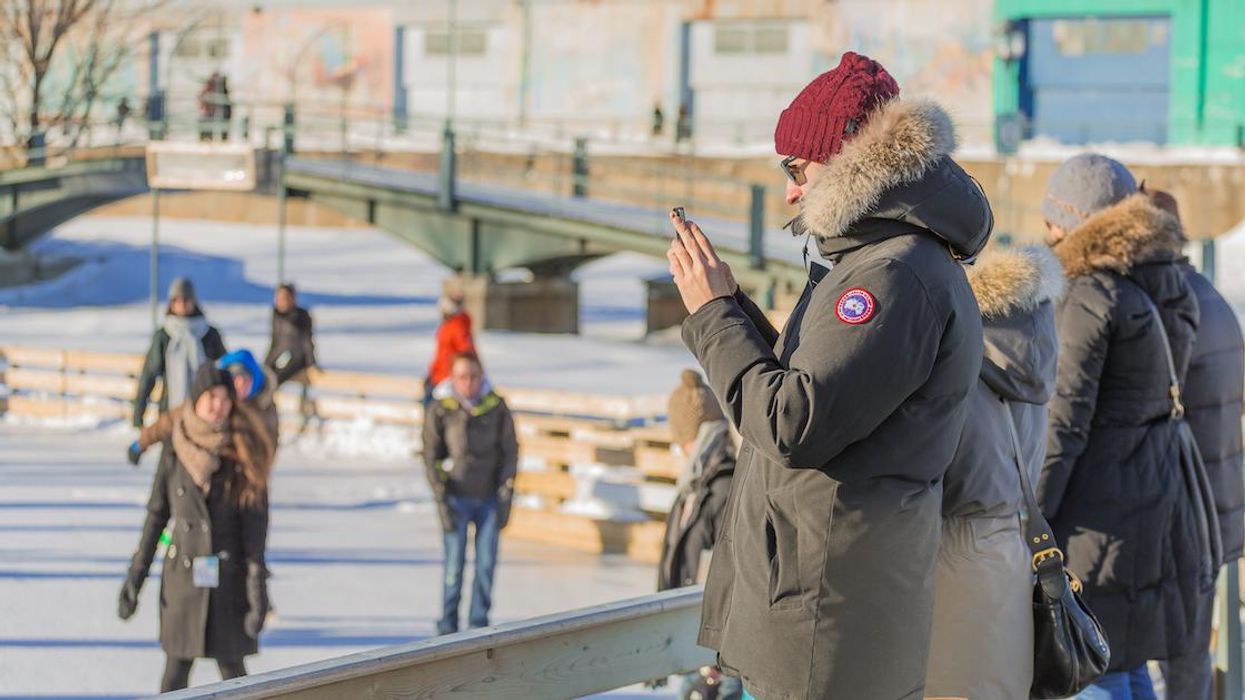Welcome To Scamada! Scams In Canada Have Become Way More Common, A New Survey Suggests
Have you noticed more scams in the last two years?

Person on their phone at an outdoor Montreal ice rink.
Fraudsters have come a long way since the days of the Nigerian prince scam. According to a new poll by RBC, Canadians report being targeted by all kinds of scams in the last two years — everything from standard phishing and inheritance scams all the way to COVID-19-related scams.
46% of Quebecers polled reported that they've been targeted by more scams since the pandemic began. This is right in line with the national average: 48%. More than half of Quebecers (54%) have trouble identifying scams in their email, texts, and online. This isn't surprising, considering that 42% of Quebecers have seen an uptick in scams in which fraudsters impersonate reputable brands.
35% of Quebecers report that someone close to them fell for an online scam in the last year and 15% of Quebecers admitted they would be "too embarrassed" to admit it if it happened to them.
So what should Quebecers do to keep themselves safe online?
The first tips from RBC are obvious, but bear repeating: don't open emails from senders you don't know, and don't click on any links or attachments unless you're sure they're from someone you know. And always remember that if a deal sounds too good to be true, it's because it is.
RBC also recommends being careful on your socials. Fraudsters often use social media as a way to target victims. Be mindful about what information you make publicly accessible. Be careful about where you give out your credit card number or banking information, as fraudsters have been known to impersonate common brands.
"It's important to recognize that anyone can fall victim to fraud," said Kevin Purkiss, Vice-President of Fraud Management at RBC. "It's just as important to talk about it if it happens to you."
